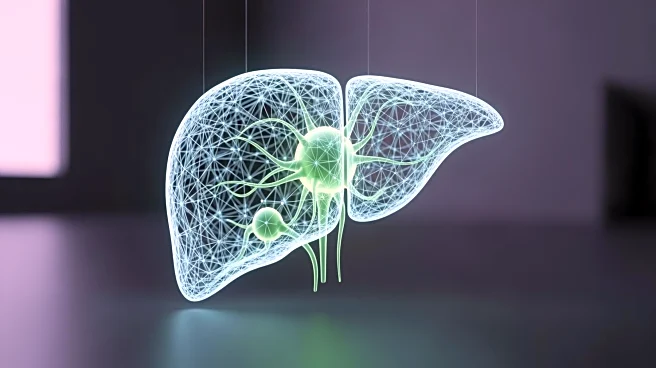What's Happening?
A deep learning model has been developed to assess survival benefits in hepatocellular carcinoma (HCC) patients undergoing intra-arterial therapies. The model uses contrast-enhanced computed tomography
(CECT) to identify proliferative HCC subtypes and predict overall survival. The study involved 398 patients who underwent surgical resection and 5,668 patients with unresectable HCC treated with hepatic arterial infusion chemotherapy (HAIC) or transarterial chemoembolization (TACE). The model integrates imaging features with clinical markers to enhance survival predictions.
Why It's Important?
The development of this deep learning model represents a significant advancement in personalized medicine for HCC patients. By accurately predicting survival outcomes, the model can guide treatment decisions and improve patient management. This approach aligns with the growing trend towards precision medicine, where treatments are tailored to individual patient characteristics. The model’s ability to integrate imaging and clinical data highlights the potential of artificial intelligence in transforming healthcare and improving patient outcomes.
What's Next?
The deep learning model is expected to undergo further validation and refinement to enhance its predictive accuracy. As more data becomes available, the model may be adapted to other cancer types or treatment modalities. The integration of AI in healthcare is likely to continue, with ongoing research focused on developing models that can provide actionable insights for clinicians. Collaboration between researchers, clinicians, and technology developers will be crucial for advancing these initiatives.
Beyond the Headlines
The use of deep learning in healthcare raises important ethical and regulatory considerations. Ensuring data privacy and security is paramount, as is the need for transparent and unbiased algorithms. As AI becomes more integrated into clinical practice, stakeholders must address these challenges to maintain public trust and ensure equitable access to advanced healthcare technologies.









